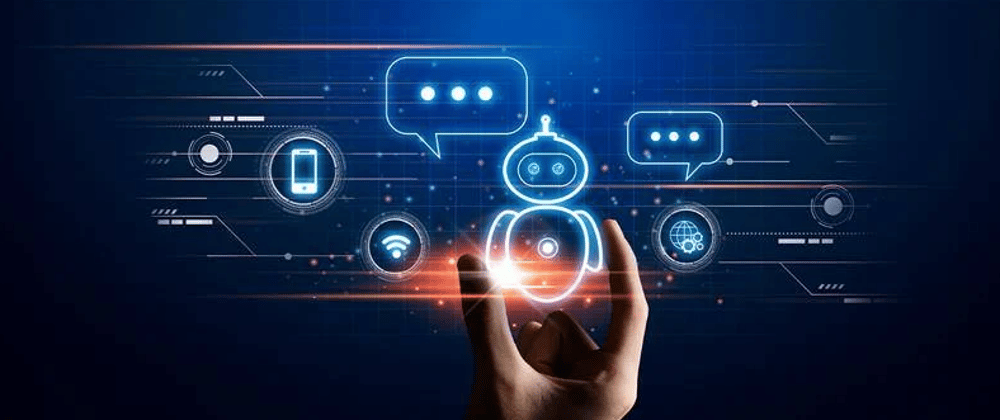In today’s fast-evolving digital landscape, businesses are constantly searching for innovative ways to enhance customer experience, improve operational efficiency, and reduce costs. One of the most powerful tools emerging in this realm is the chatbot for enterprise. These AI-driven assistants are reshaping how businesses interact with customers and streamline internal processes.
In this article, we’ll explore what enterprise chatbots are, their key benefits, and how they’re being used across various industries to improve customer service and boost productivity.
What Is a Chatbot for Enterprise?
A chatbot for enterprise is an AI-powered software designed to help businesses automate customer interactions and internal tasks on a large scale. Unlike basic chatbots, which handle casual conversations, enterprise chatbots are built to address more complex queries and integrate with various business systems such as CRM (Customer Relationship Management) platforms, ERP (Enterprise Resource Planning) software, and other key tools.
These advanced chatbots can operate across multiple communication channels, including websites, mobile apps, social messaging platforms like WhatsApp and Facebook Messenger, and even voice assistants like Amazon Alexa, allowing businesses to reach customers wherever they are.
Key Benefits of Enterprise Chatbots
Implementing a chatbot for enterprise comes with numerous advantages that can improve customer satisfaction, reduce costs, and enhance overall business operations. Let’s take a closer look at some of the key benefits:
1. 24/7 Availability for Customer Support
One of the major benefits of an enterprise chatbot is its ability to provide round-the-clock support. Unlike human agents, chatbots never need breaks, meaning they can instantly respond to customer queries at any time of day, ensuring that your business is always available.
2. Faster Response Times
Customers expect fast responses, and chatbots excel in this area. By handling multiple inquiries simultaneously, chatbots drastically reduce wait times, leading to higher customer satisfaction.
3. Cost Efficiency
Hiring and training customer support staff can be costly. By automating repetitive tasks like answering frequently asked questions or processing basic orders, chatbots help businesses save money while allowing human agents to focus on more complex issues.
4. Increased Efficiency
Chatbots can handle routine tasks such as booking appointments, processing orders, and providing standard information, which frees up your employees to focus on higher-priority tasks, ultimately improving your business’s efficiency.
5. Personalized Customer Experience
Advanced AI chatbots are capable of remembering past interactions with customers. This enables them to provide personalized recommendations, such as suggesting products based on previous purchases, making the customer experience more relevant and engaging.
6. Seamless Integration with Business Systems
Enterprise chatbots can integrate smoothly with existing CRM, ERP, and other business systems, making it easier to manage customer data, track orders, and automate various workflows—all while delivering a consistent and personalized experience for your customers.
7. Data Collection and Insights
Chatbots collect valuable data during interactions with customers. Analyzing this data helps businesses identify trends, understand common issues, and gain insights into customer preferences, enabling them to improve their services and make informed decisions.
8. Scalability
As businesses grow, so do customer inquiries. Enterprise chatbots are highly scalable and can handle thousands of conversations at once, ensuring that your business can continue to provide excellent service as it expands.
Common Use Cases of Enterprise Chatbots
Enterprise chatbots are used in various industries to improve customer service, automate routine tasks, and enhance operational efficiency. Let’s explore some of the most common use cases:
1. Customer Support
Many companies rely on chatbots to provide fast and reliable customer support. These bots can answer common questions, troubleshoot basic issues, and escalate more complex problems to human agents.
- Example: A telecom company uses a chatbot to assist customers with billing inquiries, technical issues, and plan upgrades.
2. E-commerce and Retail
In the retail sector, chatbots help businesses engage with customers, suggest products, and streamline transactions.
- Example: An e-commerce chatbot assists customers in finding the right products, checking availability, and tracking their orders.
3. Banking and Finance
Banks and financial institutions use chatbots for secure, efficient customer service. These bots can provide account balance updates, help with money transfers, and answer financial queries.
- Example: A banking chatbot allows users to transfer money, check their account balance, and set up notifications for transactions.
4. Healthcare
Healthcare providers use chatbots to assist patients with appointment scheduling, checking symptoms, and sending medication reminders.
- Example: A hospital chatbot helps patients book doctor appointments and access information about available medical services.
5. Human Resources (HR) and Employee Support
Chatbots in HR departments streamline employee inquiries regarding company policies, payroll information, and benefits.
- Example: An HR chatbot guides employees through onboarding, answers questions about leave policies, and assists with internal training.
6. Travel and Hospitality
Travel businesses use chatbots to help customers with flight bookings, hotel reservations, and real-time travel updates.
- Example: A travel chatbot can suggest destinations, check flight availability, and help book accommodations.
7. IT Helpdesk
IT teams use chatbots to assist employees with technical issues, including troubleshooting software problems and resetting passwords.
- Example: An IT chatbot helps employees resolve network issues and submit technical support requests.
8. Legal and Consulting
Law firms and consultants use chatbots to handle initial client inquiries, schedule consultations, and provide basic legal information.
- Example: A chatbot for a law firm answers common legal questions and helps schedule consultations with attorneys.
How to Implement an Enterprise Chatbot in Your Business
If you’re looking to integrate a chatbot for enterprise into your business, follow these simple steps to get started:
Step 1: Define Your Goals
First, identify the specific tasks you want the chatbot to handle. Whether it’s customer support, lead generation, or automating internal processes, understanding your goals will help you choose the right solution for your needs.
Step 2: Select the Right Chatbot Platform
Choose a chatbot platform that suits your business. Solutions like ChatArm offer advanced AI-powered chatbots tailored to enterprise needs, making integration with existing systems seamless and scalable.
Step 3: Train Your Chatbot
Train your chatbot using historical customer interactions and frequently asked questions. As it engages with more customers, the chatbot will improve over time, becoming more accurate in its responses.
Step 4: Integrate with Your Business Systems
Ensure that your chatbot is connected to your CRM, ERP, and other essential business tools for a smooth, unified experience.
Step 5: Monitor and Optimize
Regularly monitor chatbot interactions, gather feedback, and make necessary improvements to keep the bot’s performance at its best. Continuously testing and updating the chatbot ensures it adapts to changing customer expectations.
The Future of Enterprise Chatbots
The future of chatbots for enterprise is bright. As AI technology evolves, chatbots will become even smarter, capable of handling more complex tasks and offering increasingly personalized experiences. By adopting chatbot technology today, businesses can stay ahead of the competition and deliver top-notch customer service.
Conclusion
Enterprise chatbots are transforming the way businesses engage with customers and manage internal processes. From improving operational efficiency to enhancing customer satisfaction, the advantages of adopting a chatbot for your enterprise are clear. Whether you’re in retail, healthcare, banking, or any other industry, implementing a chatbot can streamline your operations and improve your customer interactions.
Ready to take the next step in automating your business? Start with ChatArm today and see how AI-powered chatbots can benefit your enterprise!
Visit The General Post for more interesting stories.
HOUSEGOODS Premium 304 Steel Chopping Board for Kitchen, Made by Tata Stainless Steel, Rust-Free Cutting Board, Non-Slip, Anti-Bacterial, Chef Approved, Ideal for Vegetables, Fruits, Meat 35cm x 25cm
₹685.00 (as of 21 February, 2025 11:35 GMT +05:30 - More infoProduct prices and availability are accurate as of the date/time indicated and are subject to change. Any price and availability information displayed on [relevant Amazon Site(s), as applicable] at the time of purchase will apply to the purchase of this product.)LIVORO Study Table/Bed Table/Foldable and Portable Wooden/Writing Desk for Office/Home/School (C-BIDDINGS BLACKK)
₹399.00 (as of 21 February, 2025 11:35 GMT +05:30 - More infoProduct prices and availability are accurate as of the date/time indicated and are subject to change. Any price and availability information displayed on [relevant Amazon Site(s), as applicable] at the time of purchase will apply to the purchase of this product.)Crompton Deskmate | Table Lamp | Desk Light | 5W | Sleek & USB Rechargable | Colour Changing | Smooth Dimming | Flexible & Adjustable Neck | Flame Safe Technology| Pack of 1
₹449.00 (as of 21 February, 2025 11:35 GMT +05:30 - More infoProduct prices and availability are accurate as of the date/time indicated and are subject to change. Any price and availability information displayed on [relevant Amazon Site(s), as applicable] at the time of purchase will apply to the purchase of this product.)Homestrap Set of 6 Non-Woven Printed Saree Cover/Cloth Storage/Wardrobe Organizer For Clothes with Transparent Window (Grey)(Shark Tank Featured) 45cmx33cmx22cm
₹359.00 (as of 21 February, 2025 11:30 GMT +05:30 - More infoProduct prices and availability are accurate as of the date/time indicated and are subject to change. Any price and availability information displayed on [relevant Amazon Site(s), as applicable] at the time of purchase will apply to the purchase of this product.)SHAYONAM (Double_Battery) Cordless Portable Wireless Pressure Washer Gun 48V 12000mah High Pressure Water Gun for Car Wash Bike Washing Cleaning| Adjustable Nozzle and 5M Hose Pipe/*-
₹1,499.00 (as of 21 February, 2025 11:30 GMT +05:30 - More infoProduct prices and availability are accurate as of the date/time indicated and are subject to change. Any price and availability information displayed on [relevant Amazon Site(s), as applicable] at the time of purchase will apply to the purchase of this product.)Discover more from The General Post
Subscribe to get the latest posts sent to your email.





